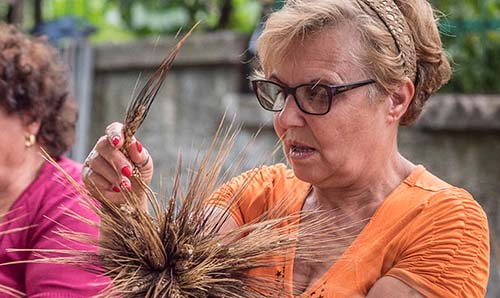
Why study here?
A leader in teaching and researching about urgent societal challenges in cross-cultural comparison, Manchester is the perfect place to study Social Anthropology in the 21st century.
Studying social anthropology at Manchester will give you the tools to understand, complicate, and address some of the most pressing issues of our time, from urban inequalities to climate change. You will learn to challenge common sense assumptions by developing your understanding of what makes humans similar and different across borders.
Social Anthropology is the study of human life in all its diverse forms. You will become part of an intellectually stimulating and supportive environment, learning about issues such as migration, poverty, class, race, kinship, gender, religion, material culture, health and wellbeing, and humanitarian aid - all in the company of dynamic and engaged classmates and teachers. The department is also home to world-leading research and teaching on visual and sensory media.
Our Commitment to Teaching
- We are strongly committed to teaching and the student experience, as indicated by our consistently high scores on the National Student Survey (NSS) over the past 10 years, with 92% satisfaction in 2022.
- We ensure that all classes are engaging by linking theoretical analyses with contemporary issues and by encouraging you to pursue your own passions.
- We make innovative use of digital technologies and software to enhance your learning experience.
- Employability skills are embedded throughout your degree. You will gain transferable skills that employers value.
- We value student feedback. You will be our partners in continuing to improve the student learning experience.
Our Expertise
Through ethnographic and creative research methods, anthropologists at Manchester shed light on some of the most pressing challenges of our time. Our department has a diverse set of expertise, from migration to material cultures. Overall, our strengths lie in visual anthropology, the study of global social and health inequalities, and urban and environmental challenges. Since all staff are involved in teaching as well as research, you will be learning from experts doing cutting-edge work. Learn more about our research projects:
Things I once took for granted I can now understand and know how to challenge them. Anthropology is not just a degree; it is a whole mind-set. Everyone is incredibly passionate about what we do.
Beka Smith / Former BSocSc Social Anthropology student
You will explore theoretical and timely issues not only in academic contexts but also in conversation with material and people beyond the University. Our students in the Anthropology of Development and Humanitarianism module have created a website over the past years, in dialogue with aid workers from the British Red Cross, Save the Children, organisations assisting refugees and asylum seekers, and more.


